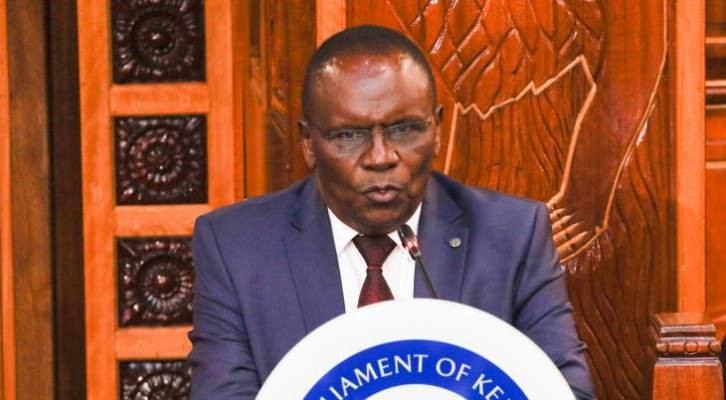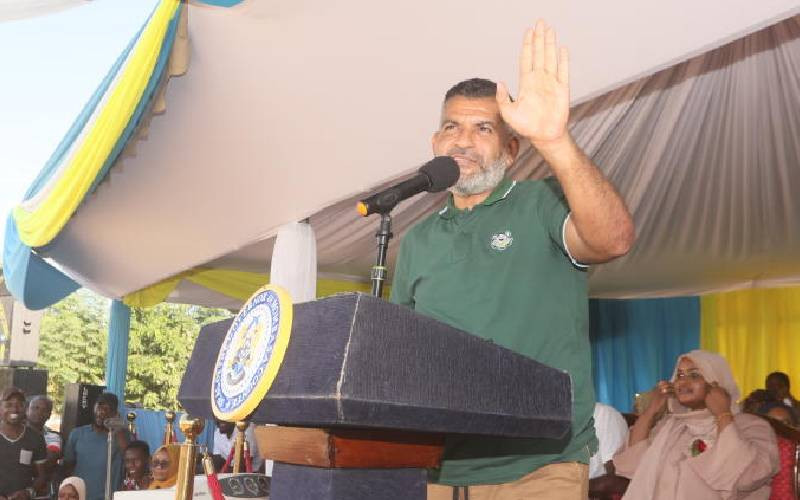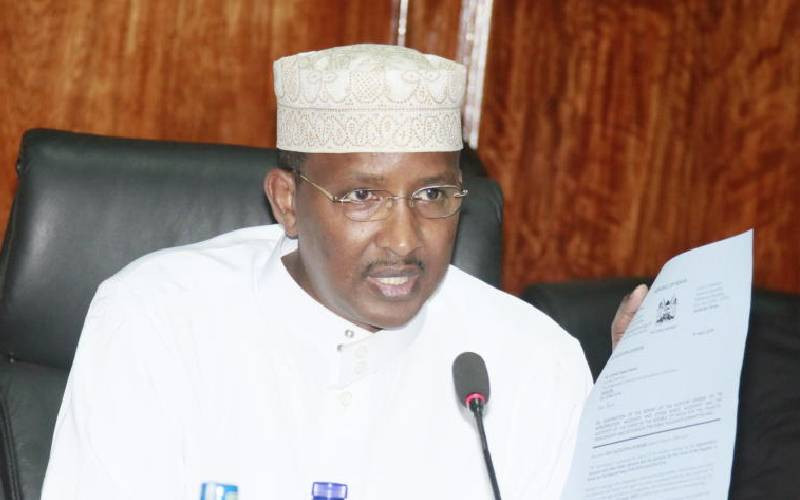Eight out of 36 magistrates have been found unsuitable to be in office by the Judges and Magistrates Vetting Board in its latest announcement.
At the same time, the Board, led by Sharad Rao, gave a lifeline to Lady Justice Abida Ali-Aroni declaring her fit to serve as a judge after reviewing its earlier recommendation for her removal after a fresh round of vetting.
The Board, whose term ends on 31st March this year, also indicated that it will proceed to the Supreme Court regarding High Court Judge Nicholas Ombija, with whom they are locked in a tussle regarding his vetting and suitability to remain in office.
Initially, the Board had declared Ombija unfit to hold office before deciding to hold a fresh vetting to relook into his case. But the Judge challenged the fresh vetting in High Court and Court of Appeal seeking to be declared fit to serve.
“The Board hopes that the appeal will be heard before the Board's term expires and is able to act in compliance of however the Supreme Court decides,” said Rao.
The magistrates who have been found unsuitable included Timothy Odiwuor Okello, William Kipkemei Chepseba, Jacinta Kwena Dibondo, Samuel Mokua Mogaka, Roselyn Akinyi Oganyo, Nyagah Jessi Njagi, Lucy Kathure Mutai and Teresia Mumbua Matheka.
Magistrate Okello was found unable to manage his finances. As a judicial officer he issued a cheque that was dishonoured due to lack of funds. The Magistrate also had rent arrears upon winding up his law firm and paid the same after joining the Judiciary.
"This kind of disorganisation is worrying of a person who holds judicial office. He is expected to maintain propriety by paying all his debts in time. A Judicial Officer, who cannot manage his finances, is easily compromised," said the Board.
He was also found culpable in some court cases in which he was found to have been partisan and conducted himself without integrity.
Magistrate Chepseba could also not satisfactorily explain the source of his finances, including deposits in his account. He said most of the money came from farming activities, including selling milk and charcoal. But the Board was not persuaded.
He also landed in hot water after irregularly dismissing a petition challenging elections in Siaya. His ruling was found very sketchy and did not properly set out the rationale for the decision.
Magistrate Dibondo faces accusations of bribery including allegedly receiving Sh70, 000 to grant an order in court proceedings in Kericho High Court. She also had several unexplained deposits in her accounts, including deposits amounting to over Sh1 million made from 2007 to 2009.
There were also several other deposits made from 2007 to 2008, which the Magistrate explained were proceeds from the sale of tea leaves, and other farm produce. The Magistrate was unable to provide satisfactory proof of such transactional income.
Magistrate Mogaka could not explain deposit into his bank accounts despite having no rental or business income For instance, in November 2009 there were cash deposits totaling to Sh150, 000.
When asked to explain, he said: "Man is a social animal by nature and necessity. At times when I had money, I give to friends which they could refund also and I cannot exactly remember 10 or 20 thousand. I cannot remember at times."
Stay informed. Subscribe to our newsletter
Magistrate Oganyo was found to be of doubtful integrity after failing to disclose previous complaints that had been filed against her. But she did not have any suspicious financial transactions in her bank account.
On his part, Magistrate Nyagah has large unexplained bank deposits in his accounts. His explanation that most of the income came from his wife's clothing business was found unconvincing.
Magistrate Mutai was found guilty for her failure to rule on an application for bail for four days in respect of a party who had appeared before her court under warrant of arrest. This was despite her apology for the anomaly.
The magistrate also failed to support some deposits in her bank account with the board dismissing her explanation that it was child support money from her estranged husband. She also claimed to be in tree and tea farming.
Magistrate Matheka faced two complaints including convicting a suspect even before conducting a hearing. In another case, she convicted a person who was not even an accused in the case.
The Board found that the Magistrate misconducted herself and acted incompetently. Her actions have caused a grave injustice to the complainant.
The Board suggested that the Judicial Service Commission and or Parliament should set up an independent complaints commission that could deal with complaints against all Judges and Magistrates including those already vetted.
 The Standard Group Plc is a
multi-media organization with investments in media platforms spanning newspaper
print operations, television, radio broadcasting, digital and online services. The
Standard Group is recognized as a leading multi-media house in Kenya with a key
influence in matters of national and international interest.
The Standard Group Plc is a
multi-media organization with investments in media platforms spanning newspaper
print operations, television, radio broadcasting, digital and online services. The
Standard Group is recognized as a leading multi-media house in Kenya with a key
influence in matters of national and international interest.
 The Standard Group Plc is a
multi-media organization with investments in media platforms spanning newspaper
print operations, television, radio broadcasting, digital and online services. The
Standard Group is recognized as a leading multi-media house in Kenya with a key
influence in matters of national and international interest.
The Standard Group Plc is a
multi-media organization with investments in media platforms spanning newspaper
print operations, television, radio broadcasting, digital and online services. The
Standard Group is recognized as a leading multi-media house in Kenya with a key
influence in matters of national and international interest.








